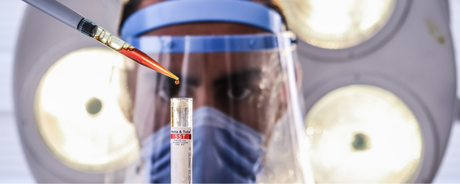
The past couple of years have pushed hospitals, health care, and medical professionals to the limits. In this post we look at the current state of affairs within the medical sector, what can be done to help and what we can do to make sure that medical staff are not only safe whilst saving lives but not having to worry about the waste that is being created in the process.
It's no surprise that medical waste is on the rise. Since the pandemic began in late 2019 there has been just short of 2 million tons of medical waste created in the UK alone, an increase of roughly 6% before pre-pandemic stats. This increase has had a dramatic impact on how medical waste is processed and crucially how it is dealt with whilst it is waiting to be destroyed. Waste build-up is a huge issue within the medical industry due to the hazards the waste , and with this increase coming in a short space of time it hasn't given facilities time to adapt and improve their infrastructure to come with this increase.
The main culprits for this increase in medical waste come from these three main areas:
- COVID-19 Tests (Lateral Flow Tests & PCR)
- Vaccines (bottles, sharps, swabs, cleaning patches)
- PPE (Mask, Gloves, Aprons, Overalls, Visors

All these items are critical in the fight against Covid-19. Tests have become commonplace in work and for travelling, events and of course testing individuals. Vaccines have been rolled out at a record pace and PPE is used by every individual on a daily basis. This will not reduce anytime soon and will only increase as more variants are discovered and newer vaccines are released.
Many hospitals are at near capacity throughout the world, individual facilities are creating more waste than they can dispose of on a daily basis. Most waste is collected by external collection agencies but these are mostly at full capacity and can not deal with the increased amounts, this is where on-site incineration comes in.
Our range of medical incinerators have the capability to destroy all waste created by medical practices and hospitals immediately. Waste is not being stored to be collected - which reduces chances of contamination and reduces exposure to staff and patients. On-site incineration increases biosecurity throughout a facility whilst also saving money.

Medical teams shouldn't have to worry about these challenges, they should be allowed to focus on saving lives.
Medical waste doesn't seem to be declining any time soon and with year on year increases in volume and global populations continuing to rise it's logical to assume these problems are only going to become bigger if not dealt with immediately.
On-site incineration is solution to medical waste - take a look at our wide range of medical waste solutions HERE.

